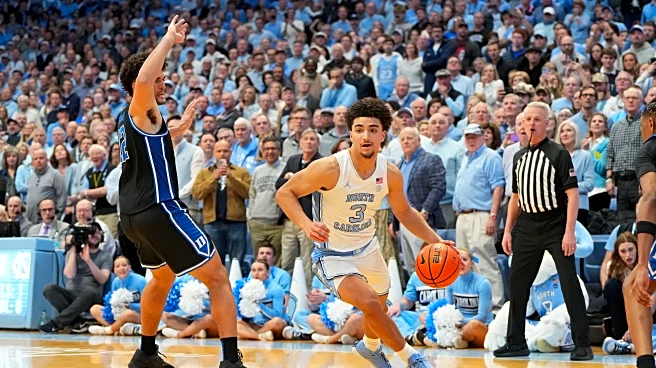What's Happening?
A federal appeals court has ruled that the Trump administration cannot deploy the National Guard in Illinois, following a temporary restraining order by a federal district judge. The decision comes amid protests in Chicago related to the administration's immigration crackdown, known as Operation Midway Blitz. The court's ruling allows President Trump to federalize the National Guard but prevents new deployments in Illinois. The administration had previously sent troops from Illinois and Texas in response to clashes between protesters and federal agents. Local officials argue that the federal government is exaggerating the situation.
Why It's Important?
The court's decision is significant as it addresses the balance of power between federal and state authorities in deploying military forces domestically. The ruling reflects ongoing tensions between the Trump administration and Democrat-led states over immigration policies and the use of federal troops. The deployment of the National Guard in urban areas has been controversial, with critics arguing it may escalate tensions and lead to civil unrest. The decision may influence future legal challenges and policy decisions regarding federal intervention in state matters.
What's Next?
The ruling allows already deployed National Guard troops to remain in Illinois for the time being, but further deployments are restricted. The administration may seek to appeal the decision or explore alternative measures to address the protests. Local and state officials are likely to continue opposing federal intervention, advocating for solutions that prioritize community engagement and de-escalation. The situation in Chicago and other cities may prompt broader discussions on immigration policy and the role of federal forces in domestic affairs.
Beyond the Headlines
The legal battle over National Guard deployments highlights broader issues of federalism and the limits of executive power. The use of military forces in civilian contexts raises ethical and legal questions about the appropriate response to civil unrest. The decision may set a precedent for future cases involving federal intervention in state matters, influencing the relationship between state and federal governments.









